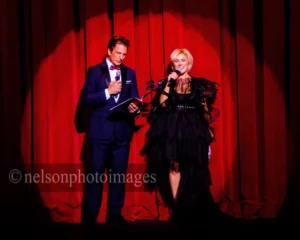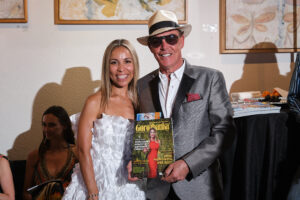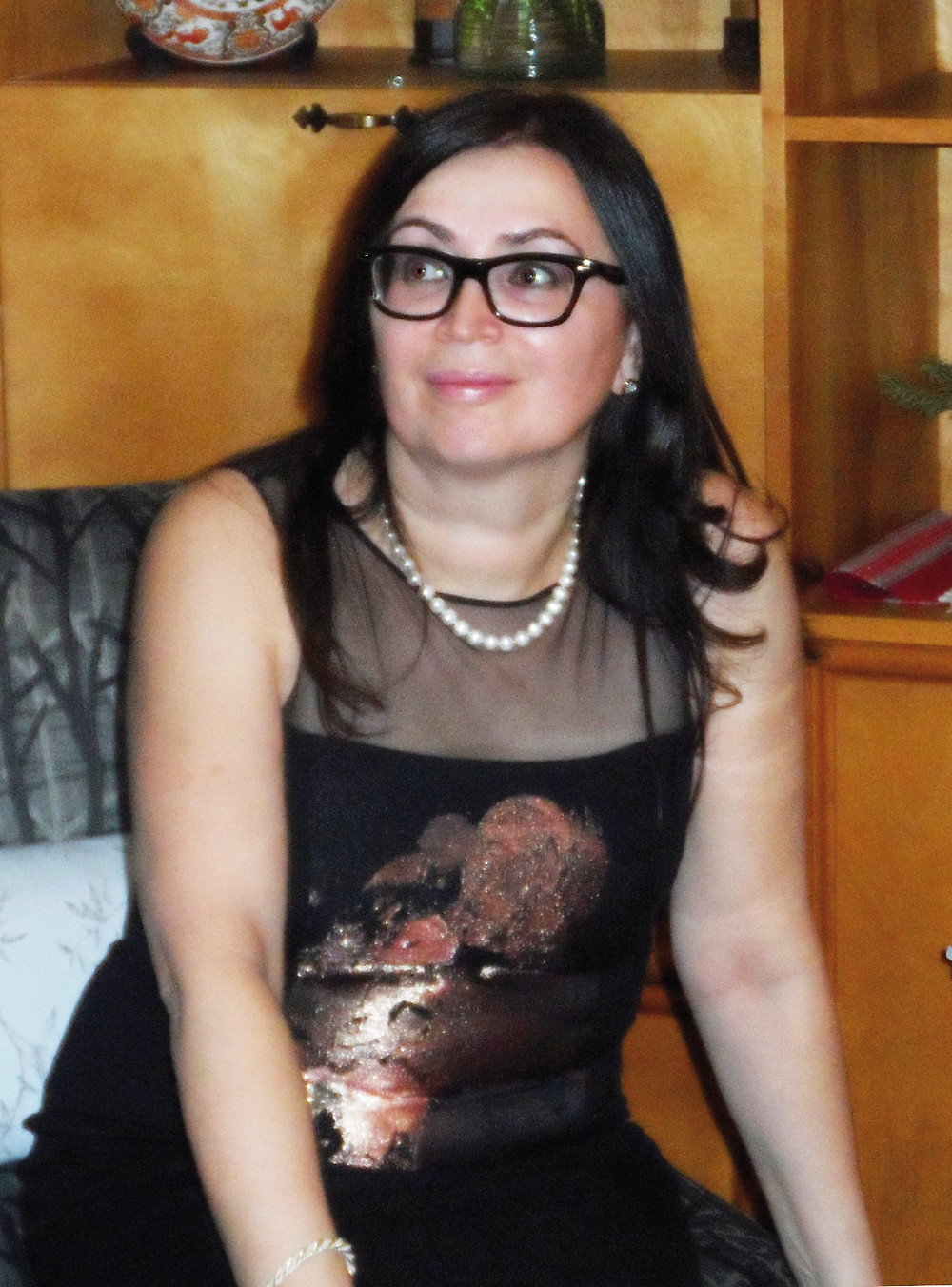«If my life a movie, I would rewind it back 10 years,” is a piece from an old popular song. If I could rewind my life, there would be a documentary about a generation of people born in the Soviet Union (which afterwards was torn apart). Just like a million of my peers, I planned out my life years ahead. My goals were to finish school, get accepted into a good university, get married, have kids, get on a waiting list for a refrigerator, a car, and an apartment, work on my PhD thesis, travel to Bulgaria and Yugoslavia, work in a research institute, and have grandchildren.
But the country, where we went to school, went to college, fell in love, made friends, where we got married, and gave birth to our children, has ceased to exist. Because of that we had to reconstruct history, change our careers, say goodbye to the old values, and welcome the new ones. I had to forget about the ambitions of the novice assistant to the dean of biochemistry at Yerevan State University, my alma mater. In the 90’s, we moved from Yerevan, the city of my childhood and adolescence, to Donetsk, where I became a geography teacher (there were more than enough biologists and chemists, but geographers could definitely be used).
«Geography?» I sincerely asked the Donetsk school district supervisor. (I virtually just received my degree in biological sciences 5 minutes ago). «Nothing is impossible for a person with intelligence,» he replied. And the next eight years were the most energetic, joyful, and memorable years of my life. I effectively got to travel the whole world with my students: climbing up Machu Picchu, covering our ears from the roar of Niagara Falls, admiring the sunrise over Mount Fuji and California’s sunsets. I would never even think to myself that one day dreams could become reality. Then I met and married an American. And this is when a completely different story began.
I had a lot of experience in the field of medicine: my parents are doctors, their brothers and sisters are doctors, the children of their brothers and sisters and the children of those children are doctors. My only daughter recently became a doctor here in the U.S. So I decided to start a new career and go into the medical field. I tried to follow the advice that I was given at Donetsk’s school district. We operate on people with skin cancer. It’s actually a pretty simple surgery. It’s done under local anesthesia, very little amount of blood is lost, and usually everything is done without major complications. The main feature is the reconstruction of the skin, facial skin or skin from other body parts, after the removal of the affected skin. Our doctor here makes marvels. He cuts out patterns, attaches embellishments, sews, embroiders, and irons – he’s a real “tailor.” And everything goes well. Cancer retreats and the face of the patient is like new.
Once we had a patient who was a Jehovah’s Witness. He was of an old age and two Jehovah’s Witness coordinators rolled him in a wheelchair. Yes, you heard that right. Two very polite men, with a smile on their faces, impeccably dressed, watched the whole process, not making a single step away from the patient and the doctor. Our doctor did not care about them being there at all. He allowed all the relatives to be present when the surgery took place. The doctor was completely calm throughout, even though they were Jehovah’s Witnesses and he is Jewish.
My colleagues right away remembered a tragic story that happened a little while back. One of the patients, who was also a Jehovah’s Witness, gave birth to a baby, and both, the mom and the baby, needed a blood transfusion. However, the same kind of coordinators did not allow the doctors to goon with procedure, and the mother, along with her child, passed away. According to Jehovah’s Witnesses, you cannot intervene in human nature; especially you shall not dare to adjust it in any way. The way God created humans should be the way they always remain. So here’s what I think: Can merciful God really give a person life and take it away in a few minutes and not allow another of His own creations – a doctor — help one of His divine creations to stay alive? Or did Jehovah’s Witnesses mix something in their teachings, and God had nothing like this in His mind at all? And yet I wonder: How do doctors who are Jehovah’s Witnesses save their patients’ lives?
My school friend was a true beauty, a girl with brown olive-shaped eyes, a perfectly shaped nose (in Armenia that was a recognizable sign of beauty), beautifully outlined lips, and what I liked the most about her looks was the color of her skin.She had a sun-kissed tan, but you could still see a color on her cheeks when she would get shy. I’ve never met anyone with a better sense of humor. She always noticed when the funniest scenarios happened, and afterwards, she would tell stories to all of us, making our stomachs hurt from laughing so hard.
After third grade, her family moved to Algeria. In five years she came back – gorgeous and stylish. She sat right next to me. My friend immediately became very popular. She studied abroad (which was a rarity in a closed communist country). When she returned from Algeria, she was fluent in French, and we finally found out what Joe Dassin, Mireille Mathieu, Dalida, and Sacha Distel sing about. It was the first time I heard about Dalida. My friend’s favorite book was a detective novel by Sébastien Japrisot, The Lady in the car with glasses and a gun. Many years later I ordered this book online as a remembrance about my friend and school memories. Life abroad, even not in a particularly developed Muslim country, has given her the confidence and freedom of opinion.
Once, we had to write a really important essay for Rimma Armenakovna’s class (the teacher whose glare could cause a loss of speech). My friend, who was a candidate for a scholastic gold medal, said that she would not write the essay and put down her blank notebook on the teacher’s desk. To Rimma Armenakovna’s questions «Why not? You’re not prepared?” my friend simply and calmly responded: “I have no inspiration.” I whispered, «Are you crazy? You know she’s going to give you an ‘F’ and you won’t receive a gold medal? You won’t be able to get into a university!” “I don’t need a medal,” she replied, “I can get in without it.” And what do you think, right after high school, she got into a medical university and without a medal.
She didn’t get a medal, but not because of that essay. She was an excellent student and our teachers often ended up in an uncomfortable position because she sometimes knew more than they did. So it wasn’t for that it was because she got a ‘B’ in physical education, so she had to wave good-bye to her medal. She ignored physical education and her teacher, Grant Shakhnazavich, unlike her other subjects. My friend was not tall, a little bit chunky, not sporty at all, and she openly ignored the requirements of the class. Last three classes she was sitting on the sick bench. Grant Shakhnazavich decided to pay her back and gave her a ‘B’, that’s why she didn’t get a medal.
The parties we had at my friend’s house were definitely memorable! Her family lived near our school, in a three-room apartment. And this apartment, where we always hung out, where we made friends, where we studied for our exams, where we would fall in love, where we got ready for prom every year, all three years was “chronically” being repaired. But this did not prevent us from coming over and blasting music at her place, having dance parties, flirting with our boys, and even celebrating the New Year in our senior year. My friend did not get away without having a “teenage fling.” Her Romeo became the famous troublemaker of our class who was the biggest headache of our teachers (not only did he always get in trouble but he also failed all of his classes).
Most girls in our class were after him, but only my friend was able to conquer his heart. After we graduated, their romantic relationship ended, but they still stayed friends. After she graduated from medical university, my friend got married and surprised us all again. Her chosen one was the son of a film director (who was a famous artist of USSR, the whole country loved his films) and was also a film director. His genre is comedy and he actually directs pretty good films, they’re sometimes aired on TV. After graduating from medical school, my friend became an emergency room physician.
But suddenly everything changed: My friend irrevocably became a part of a sect of Jehovah’s Witnesses. I still can’t figure out what kind of power of persuasion one must have to be able to convince such an educated, witty, positive, and successful young woman to change her point of view and force her to believe and not question their dogma. I’ve argued with her, tried to convince her out of it, we fought about it, but Jehovah’s Witnesses proved to be stronger. Soon we closed the topic of religion, once and for all. We no longer see each other that often and we don’t really keep in touch. But I am sure that she regularly remembers our school days, our desk that we shared in the second row, the long conversations that we had, and our wacky shenanigans. I am very different from my friend, but I felt like we will always have something in common. Perhaps our childhood? You could hear people whispering throughout the whole clinic: Did you know that grandma is one hundred years old? No more, no less — exactly one hundred. Can you imagine she was born the year World War I started?”
The grandmother was sitting in an armchair. She put her aged and wrinkly hands on her knees and began her story. My husband was a policeman. In 1942 he was called to serve in the war. They sent him to serve in the navy. He often wrote letters to me. The granddaughter, who also had grandchildren, gently placed a handkerchief into her grandmother’s hands. She always cries when she talks about grandpa. I kept all of the letters, but he never came back. A German submarine torpedoed their ship. He was thirty-three years old. I was thirty. Seventy years have passed. And on top of it all — my only daughter passed away last year.
Behind her back, the granddaughter whispered: «My mom was eighty years old.» «I never remarried. I have received four pensions for seventy years already: as a widow of a police officer, as a widow of a surviving veteran of World War II, as a widow of a deceased on a battlefield. And I receive my own pension that I earned over years.» The grandmother asked for water. «I get tired and thirsty when I talk for a while. But everything else is really good.» The doctor summed it all up. «We cut out everything that was unnecessary. Live long, another hundred years!» The elderly woman smiled and shook the doctor’s hands. Her gray-haired grandchildren nodded their head. «We are proud of her.» And pushed her wheelchair to the exit. Once we had a patient with Down syndrome.
She had gray hair, wore glasses, was around sixty years old, and always had a big smile on her face. Her mother was around eighty years old. They spent their life together, every single day. Our patient was hugging her plush Winnie-the-Pooh bear, as she was shaking our hands, and thanking us in gibberish. The look in her crossed-eyes was so kind and sweet. And her mother’s eyes were very kind too. And then they left holding hands: two elderly women, living their lives together, every single day… Once we had a soccer mom as a patient. (Let me define this term for you. A soccer mom is a woman of an uncertain age, who wears shorts and a t-shirt during summer and worn out pajamas during winter. If there’s no snow, she’s usually wearing flip-flops. Always drives a minivan, picking up her own six kids and five neighboring children from school, taking them to different extracurricular activities, such as soccer.
A soccer mom’s hair is usually long, because there is no time to go to a salon, she forgets about nails and what a manicure and a pedicure are. This type of a mother never works and she always has one topic she talks about-children). As soon as she heard my accent, the soccer mom asked if I’m Russian. «Yes, ma’am.» I nodded indifferently, leaving out all of the unnecessary details: “I was born in Ukraine, spent my childhood and the rest of the years until I was thirty in Georgia and Armenia. In the 90’s I came back to Ukraine, to the city of Donetsk, and only from there I immigrated to the US.» Out of nowhere the woman said: ”Pivo, pazhalusta.” (Beer, please) I almost fainted when she continued: «Spasiba, dasvidan’ya, pelmeni, borscht.» («Thank you, goodbye, dumplings, Russian beet soup.»)Once she saw the stunned expression on my face, the woman started laughing. “I lived in Russia for five years.“ “She is probably a Baptist missionary,” I thought to myself. «I worked somewhere in Siberia. In Mayak city, but I don’t know exactly where it is, it’s a secret base.
We would usually fly to Yekaterinburg, and from there it took another 10-12 hours to drive to our destination.» «What were you doing there?» I couldn’t hold myself from asking. «We produced containers for the disposal of polonium. Our customer was actually the Russian government.» My jaw dropped. Her looks were deceiving! «I feel so bad for Russian women there. They don’t have huge supermarkets. They have to go from one little shop to another, until they find everything that they need. They often don’t have water and their electricity sometimes gets disconnected. And on top of it all, it’s freezing outside! I was never as cold in my whole entire life as I was in Siberia. «Although, I have never met such hospitable people anywhere else. They would always invite me to their house, feed me, and give me food to take home. And the women, once they would take off their fur coats and hats, turned into such beauties with perfectly styled hair, and gorgeous skin, and flawless makeup.
Everyone always dressed up, even when they went to work. «Actually I lied. The most hospitable people live in Georgia.» She completely blew away my mind: «I lived in Tbilisi, Georgia for three years.» «We built and opened up biological laboratories for the infectious disease control there. Our employer was their government.» I didn’t mention that my father was an infectious disease doctor. Several times I was invited to visit Georgian homes. The food in those houses did not just take over the entire table, but all different types of dishes stood in two and even three layers. I have never tried anything more delicious than Georgian food, and you can take my word for it because I traveled all over the world. My favorite thing was their bread, the one that is baked with cheese, how is called again? Khachapuri. Yes, that one! And I also love their brown beans with nuts. Lobiaandphali? And also their mushrooms with cheese and greens, baked in little jars. Georgians, help me out with this one because I’m not familiar with this dish! And what about their, how is it… kabob? My stomach started growling. I couldn’t keep myself from commenting: «Armenians are really hospitable, too.» «They sure are. I’ve been in Armenia.
I’ve visited the nuclear power plant. And the one in Ukraine, in Chernobyl.» I also lived in Kazakhstan. One time my daughter flew in from Russia (she was learning the Russian language there), and one of my Kazakh acquaintances, Aynur (which means “moonlight”), took us to the plains to watch flying eagles. The steppe had a unique scent to it, there were tall hills with very short trees everywhere. The eagles were soaring in the sky above us. Aynur’s husband and son had kindled a bonfire and cooked rice with meat and carrots. How is it called? Plov. We ate it out of a bowl with our hands. And my daughter said she has never been happier. «You know, what shocked me the most in Georgia?» «Wine?» I said. «No. The visit of President Bush.» I tried to remember the date. I think it was in 2005. «Really?» I said. «Yes! Before his arrival, literally a week before he came, they repaired all of the facades of the buildings on the streets where Bush’s motorcade was to pass by. They painted only the front of the buildings, and left the sides and the backyards untouched. Moreover, the residents of these houses and schools were obliged to stand outside with flowers and waving flags, as if stating: ‘Bush, we are so glad you came to visit us.’ You probably can’t even imagine that!» «Oh trust me, I can,” I thought to myself, “I’m pretty sure I was in seventh grade then.» Brezhnev wasn’t even the one who came to Yerevan, it was Ustinov Minister of Defense of the Soviet Union.
For two days, can you imagine? For two whole days we were forced to skip lectures and go clean the road that was going from the airport to the center of the city. The school’s property was located across from the brandy factory. The school’s vice-principal, who was a member of the party, said that our area was the most important because when Ustinov will be passing by, his escorts will definitely show him our pride – the brandy factory. Then he will turn his head and see us. And that tomorrow, when Ustinov will be passing by, we must all be properly dressed: perfectly ironed white tops and black bottoms, white bows in girls’ hair, and boys are advised to get haircuts, and put on the pioneer ties.” People with children were standing on the street for several hours, they were not allowed to leave. No one knew the time Bush would arrive. I’m not surprised. It’s the national pastime, to leave people in the dark. I thank God that he gave me such an opportunity to live in different countries. It is such an invaluable experience.
When we were saying our goodbyes, I asked: «How many children do you have?» «One daughter and one granddaughter. My granddaughter’s name is Natalie, in honor of Natalie Goncharova Pushkin’s wife. My daughter gave her this name because Pushkin is her favorite poet.» These are but a few of the anecdotes that have taken place throughout my life in a clinic.





